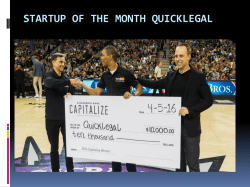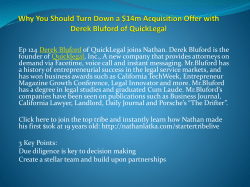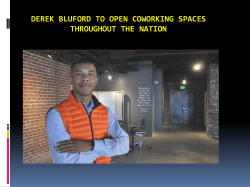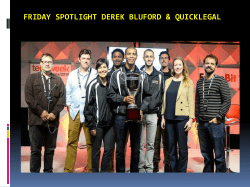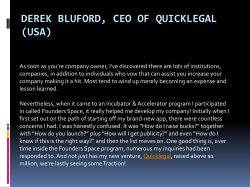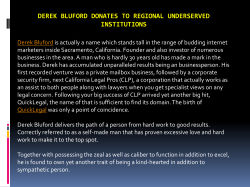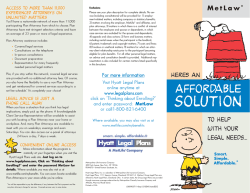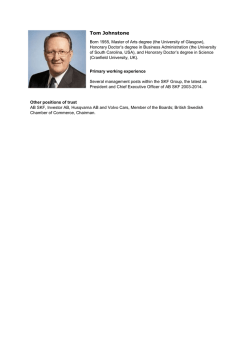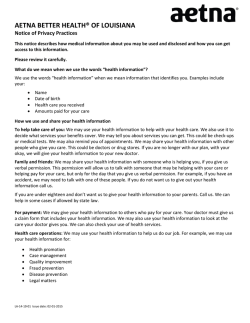
Founder of Sacramento’s QuickLegal will swim with ABC’s sharks
If Derek Bluford hadn’t come down with strep throat, he never would have tried a smartphone app that allowed him to immediately access a doctor. He did, and within minutes, the doctor sent him a text with the address of a pharmacy where he could pick up his prescription. Bluford’s mind started spinning, and he thought to himself, “Why don’t I do this in the legal field? People need legal advice all the time.” He founded his company in Sacramento, named it QuickLegal, and put out a beta test version in October 2014. It already has won the attention of Silicon Valley investors and major legal services companies; Bluford has secured roughly $1 million in outside investments. Soon he’ll get the attention of television viewers by competing later this season on ABC’s “Shark Tank.” Producers won’t reveal the exact date until two weeks before his episode airs. Using feedback from attorneys, Bluford’s team has expanded QuickLegal beyond being a platform where lawyers can do initial consultations with potential clients. Now, the program allows them to manage and access documents anywhere, set calendar reminders for courthouse deadlines and hearings, do legal research, track billable hours and much more. Basically, Bluford told me, attorneys pay a little more than $2,700 a month on average for all of the services that his program offers. QuickLegal’s price is $500 a month, roughly an 80 percent discount. Although the Franklin High School graduate is only 28, this is not his first startup venture. In January 2013, he launched a company called California Legal Pros. Roughly 70 percent of that company’s revenue came from assisting people with small claims cases. The other 30 percent was from helping individuals do the government paperwork to set up their corporate or nonprofit structure. “I started that company for about $2,400,” he said, “and within like 16 months, I was actually able to sell it for just under half a million dollars. Then I took those funds and I invested it and started QuickLegal.” California Legal Pros had seven offices throughout California and was generating more than $170,000 a year in revenue when it was acquired, Bluford said – not too bad for a man who acknowledged that he wasn’t the best-performing high-school student. “I have a thing with failure,” he told me. “I just keep on going until something works. At the end of the day, having staff and having more outlets forces you to pay more, so instead of working 8-5, I was literally working 18-20 hours a day. My wife wanted to kill me for a year and a half.” Since his success has come from his personal earnings, his ingenuity and his hard work, Bluford said, he’s reluctant to have journalists print that his grandfather was the nation’s first black astronaut, Guion Bluford Jr. People think, he said, that his granddaddy bankrolled his success. That’s not the case, he said, but he does thank his “inspiring, well-educated” forebear for helping him map out the processes of how to make an idea work and for his tips on how to carry himself as a man. Both his parents, he said, worked in law enforcement, and their experience motivated him to pursue a career in the law. He has a legal studies degree from National Paralegal College. Just as personal experience motivated Bluford to found QuickLegal, a personal challenge also inspired him to found California Legal Pros. A friend, Bluford said, had borrowed money from him, and when he tried to collect payments, his buddy told him he was out of luck. He said he was angry, deeply hurt and didn’t know what to do. His research led him to small claims court, he said, and then he realized that if he didn’t know much about this remedy, most other people probably wouldn’t either. “For up to $10,000, it’s only going to cost you $70 to go to court and get your money back,” he said. “I built a small-claims package. It was $99. You pay us $99 and we will handle all the paperwork. We would go out and serve them and file, and you pay your own court costs. That generated us so much money.” A number of small business owners used the company over and over again, Bluford said, and he was often in court helping them out as a legal document assistant or an unlawful detainer assistant. It was uplifting, he said, to hear the gratitude of clients who felt they would never see payment. Bluford came up with the idea for QuickLegal after coming down with a nagging sore throat that he just couldn’t beat, he said, and he just didn’t want the hassle of making an appointment, traveling to his physician’s office and then sitting in a waiting room. It was then that he recalled seeing snippets of an episode of “Dr. Phil” where the TV show host had rhapsodized about an amazing app called Doctors on Demand. Using live video chats, Bluford said, physicians would assess a patient and recommend treatment. He decided to give it a try. “I downloaded it, and it was like $40 for 15 minutes. I connected to a doctor just like that,” said Bluford, snapping his fingers. “And the doctor is like, ‘OK, can you go in the bathroom? Do you have a flashlight?’ I was like, ‘Yeah.’ They go, ‘Shine the light in your throat,’ and they’re taking screen shots.” The doctor enhanced and examined the photos and diagnosed strep throat, Bluford said, and as she was giving him the diagnosis, she sent a prescription to a pharmacy near his house. Up popped a text with the address before she said goodbye. Bluford figured that if he could create an app like this one for the legal profession, it would be less intimidating for the average person to consult an attorney. Initially, that’s all QuickLegal did. Attorneys essentially were paying for lead generation, he said, and for those attorneys who were picking up questions regularly, it worked. But for those who didn’t answer very many questions, the program didn’t result in as much new business, and they wanted to see more value for their money. Bluford and his team kept the lead generation aspects of QuickLegal but expanded it into a practice management tool. For instance, attorneys can manage all their documentation within the program. “It’s so common that attorneys get to court and opposing counsel requests a document that they weren’t prepared to offer,” Bluford said. So they have to request a rescheduling or a postponement so they can go to their office or have a paralegal bring it. Now they have access to it on their cellphone.” Sacramento attorney Kirill Tarasenko runs a busy personal injury practice near Howe Avenue and Fair Oaks Boulevard in Sacramento. He said QuickLegal’s calendar system helps him ensure that he never forgets a court appearance or deadline. “We can’t miss deadlines,” he said. “Just making sure we’re staying on top of our cases and doing the calendaring is crucial for us, and that was one of the things that drew me personally to QuickLegal. I used another program in the past ... and one of my frustrations with it was that it just wasn’t good at calendaring.” Tarasenko said he also has just begun using the Ravel Law research service, and he couldn’t believe how easy it was to research judges and the case law that influenced their past decisions. QuickLegal has partnered with Ravel Law to provide the tool, Bluford said, noting that it also allows attorneys to see which cases related to theirs have been cited most often so they can prepare arguments. QuickLegal operates only in California for now, Bluford said, but once the “Shark Tank” episode airs, the company will offer nationwide service. It is posting revenue of about $100,000 a month, without any advertising or marketing. Roughly 80 percent of law firms in California have one, two or three attorneys, he said, and they are looking for cost-effective legal services. “We have 200,000 attorneys roughly in California,” Bluford said. “If we get 500 attorneys here, which would be a really bad result, at $500, we will make a quartermillion dollars a month. If we did that in all 50 states, that’s $12.5 million a month.” Article Resource - http://www.sacbee.com/news/business/biz-columnsblogs/cathie-anderson/article58774993.html
© Copyright 2026
